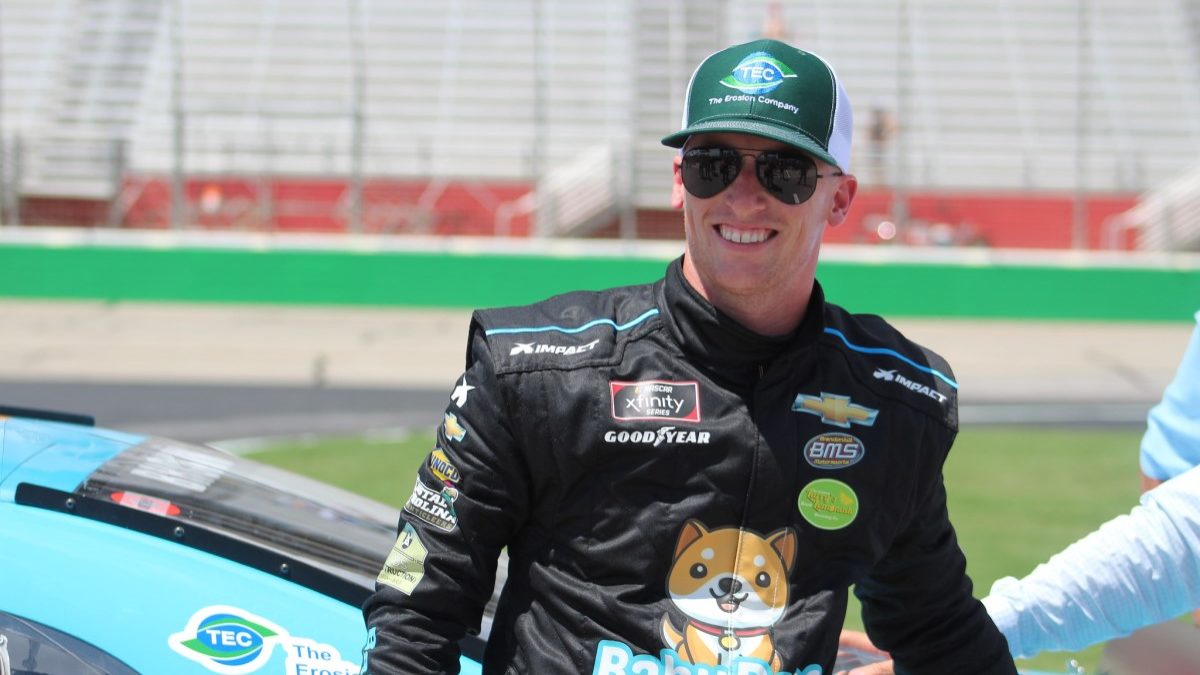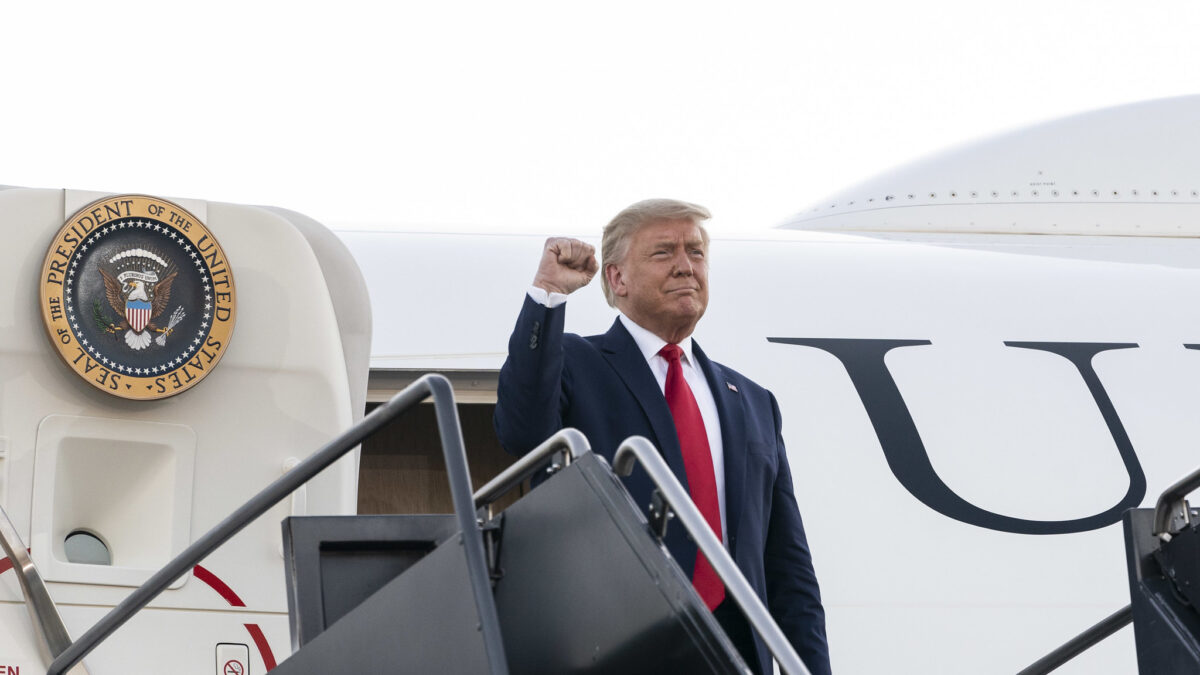In October, a scrappy NASCAR racer drove to his first win. He celebrated with his father as the two helped shock the stock car world by beating bigger, more established, better-funded teams.
It sounds like the kind of happy ending movie scriptwriters dream about. But instead, it became known for something else entirely—three words, to be exact: “Let’s go, Brandon!”
Now, three months after his win in the NASCAR Xfinity Series race at Talladega Superspeedway, Brandon Brown—yes, that Brandon—is trying to put forth his own take on the strange series of events that turned his name into a 21st-century commentary on our media and politics. He agreed to a New York Times profile and wrote a Newsweek column trying to put his last three months in context.
For years, conservatives have criticized celebrities—sports stars, musicians, actors, and the like—constantly preaching about various woke causes. Brown provides an example of the opposite phenomenon. What happens when someone wants to “shut up and dribble,” but finds that events outside his control mean he can’t?
Brandon Brown’s Underdog Team
Most people only became familiar with Brown after the post-race events of October 2. While celebrating his first-ever win at Talladega, Brown found his post-race interview interrupted with shouts of a loud, rhythmic chant involving a four-letter expletive and the name of the current occupant of the Oval Office. The interviewer tried to spin the cursing into something positive—“Let’s go, Brandon!”—and a conservative Internet phenomenon was born.
But dedicated NASCAR fans, including this one, have known about Brandon Brown for several years. Since 2019, Brown has run full-time on the Xfinity Series, one step below NASCAR’s premier Cup Series. (Think of it as AAA baseball.)
From their shop in Woodbridge, Virginia, just outside Washington, Brown and his father have scrapped and scraped to compete without the resources better-funded teams have: More cars, newer motors, bigger pit crews. What smaller types of NASCAR teams like Brown’s lack in dollars they have to make up for with determination, grit, and pluck.
A case in point: Over the summer, Brown—his team lacking race sponsors, and almost out of cash—came up with the idea for a hilarious video in which Brown provided a faux-used-car-salesman pitch to encourage advertisers to join his team: “You could sponsor my rear end!”
The ad proved as successful as it was schlocky, generating new sponsors (Larry’s Lemonade and Trade the Chain) that provided the resources to keep the team racing every weekend. So when Brown crossed the finish line first at Talladega a few months later, it should have provided the same type of feel-good underdog story that defined Michael McDowell’s first Cup victory last February in NASCAR’s biggest race of all—the Daytona 500.
But then things took a turn of the type that even an experienced stock car racer struggled to navigate.
Politics Intervened
Even the Times had to admit that the “Let’s go, Brandon!” incident “was, objectively, pretty funny.” Kelli Stavast, the NBC Sports interviewer who came up with the meme, has yet to explain the reason for her spontaneous (and obviously erroneous) intervention.
Regardless, the post-race incident had within hours rapidly overtaken the story of Brown’s win. And the sudden association of his name with a conservative meme—not for anything Brown did—meant that his first victory did not help his professional career in the normal ways. Instead of Brown’s phone ringing off the hook with potential new sponsors or teams that could help take the 28-year-old’s career to the next level, politics-averse businesses stayed away.
Conservatives would find this development ironic yet predictable, on multiple levels. The same companies who have no objections to calling America a racist country and push a woke agenda won’t go anywhere near someone associated with conservatives, even when that individual had nothing to do with the association.
After three months of silence, Brown and his press team apparently think their strategy to “lay low” hasn’t worked. They requested the Times profile and submitted the Newsweek piece as part of an attempt for Brown to re-write the narrative foisted on him in October.
Five days after the Times article appeared, a Christmas Eve caller got President Biden to say “Let’s go, Brandon!” suggesting that Brown has his work cut out for him.
Corporate Cancel Culture
Ironically enough, Brown sounds like a conservative. He admits he’s a registered Republican, although he declined to tell the Times his specific voting history. He discussed the effects of inflation and rising gas prices, and his Newsweek article specifically mentioned people “wondering why their government only seems to make it [their struggles] worse.”
But he also admits that he wants to spend 99 percent of his time focused on his race car, and told the Times, “I don’t know enough about politics to really form a true opinion.” In that sense, Brown’s silence—of thinking before one speaks out or engages in an issue—seems commendable.
Conservatives may have spent the past several months chanting “Let’s go, Brandon!” ironically. But Brandon Brown provides every reason for race fans of all political stripes to offer sincere cheers—a thoughtful yet engaging underdog who wears his passion for racing, if not his political views, on his sleeve.
Here’s hoping that the too-timid sponsors who ignored Brown after his win soon come to their senses and agree.









